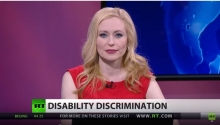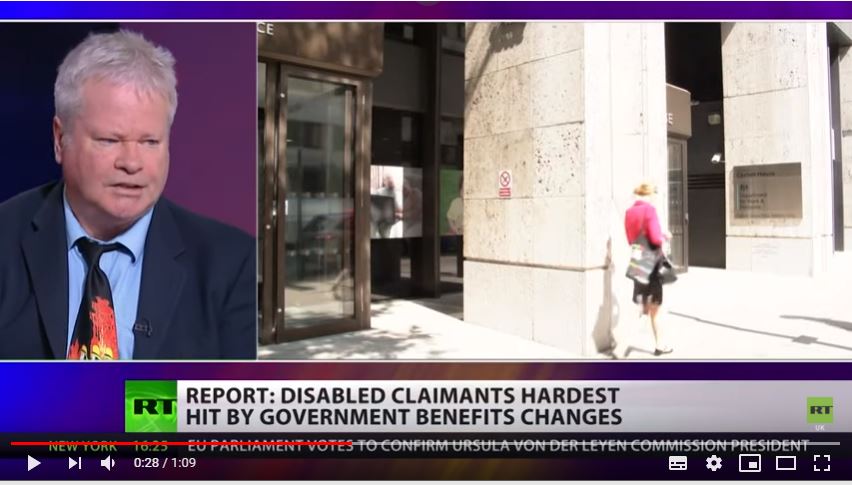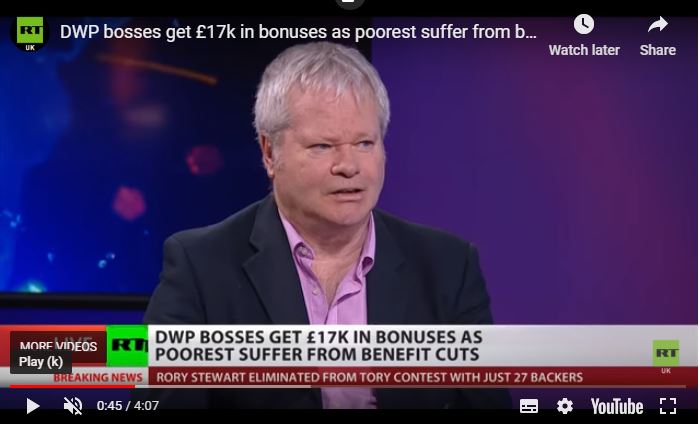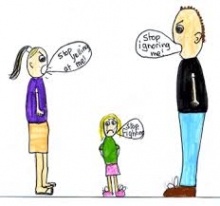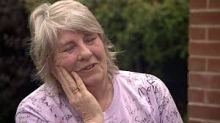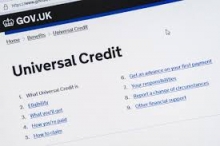Work TV
Watch our TV Channel dedicated to the ‘World of Work’. Explore our video library for informative videos featuring career opportunities at leading companies, franchising opportunities, further education and recruitment professions and their services.
Simon Collyer
Judgment Has Been Given By The Supreme Court Of The United Kingdom In The Following Case
Secretary of State for Work and Pensions (Appellant) v MM (Respondent) (Scotland) – UKSC 2017/0215
On appeal from the Inner House, Court of Session, Scotland
The respondent ("MM") is a 47 year old man who has suffered from anxiety and depression for six years. He is heavily reliant on his partner's assistance for daily living, including in social situations. In 2015 he made a claim for personal independence payment ("PIP"). This was refused by the Secretary of State for Work and Pensions on the basis that he had not scored at least eight points in respect of either daily living activities or mobility activities, as required under the Social Security (Personal Independence Payment) Regulations 2013. His appeal to the First-tier Tribunal ("FTT") was refused. The FTT increased the number of points awarded, but this was still insufficient to meet the eight points threshold for either component. In respect of his ability to engage people face to face ("Activity 9"), the FTT awarded two points. MM appealed to the Upper Tribunal ("UT"), against the FTT's decision on activity 9. He contended that his case fell within descriptor 9c ("needs social support to be able to engage with other people") rather than 9b ("needs prompting to be able to engage with other people") with the consequence that he should have been awarded four points for Activity 9, rather than two. The UT allowed his appeal and remitted the case for rehearing by a differently constituted FTT. In so doing, the UT gave directions on the meaning of "social support" in descriptor 9c. This included that there may be situations under 9c where a qualified person can provide social support non-contemporaneously, and that social support can include "prompting" subject to the requirement that it has to be from a person trained or experienced in assisting people to engage in social situations. The Inner House dismissed the Secretary of State’s appeal against the decision of the UT.
The issue is:
Where a claim to personal independence payment under the Social Security (Personal Independence Payment) Regulations 2013 is based on a person needing social support to be able to engage with other people: (1) must the social support needed be contemporaneous with the engagement being supported? (2) does anything that constitutes needing "prompting" to be able to engage with other people also constitute social support, subject to it being provided by a person trained or experienced in assisting people to engage in social situations?
JUSTICES: Lady Hale (President), Lord Kerr, Lord Hodge, Lady Black, Lord Sales

Image: UK Supreme Court
BACKGROUND TO THE APPEAL
This appeal concerns the assessment of claimants for personal independence payment (‘PIP’), a non-means tested allowance paid to certain people with long term health problems or disability. The appeal’s focus is on one of the markers used to determine the extent to which the ability of claimants to carry out daily living activities is limited by their physical or mental condition. The particular activity in question is ‘engaging with other people face to face’ and the issue is the interpretation of descriptor 9c found in Part 2 of Schedule 1 to the Social Security (Personal Independence Payment) Regulations 2013 (‘the Regulations’). The Regulations are made under Part 4 of the Welfare Reform Act 2012 (‘the Act’). Descriptor 9c reads: ‘Needs social support to be able to engage with other people’.
The respondent is a man in his forties. He made a claim for PIP in February 2015. His entitlement to the daily living component of the allowance at the standard rate depended on whether he satisfied descriptor 9c, which would give him 4 points towards the required score of at least 8 points overall under regulation 5. His claim was rejected on the ground that his ability to engage with other people face to face only satisfied descriptor 9b, ‘Needs prompting to be able to engage with other people’, which gave him a score of 2 points.
The respondent appealed unsuccessfully to the First-tier Tribunal (‘FTT’). His appeal to the Upper Tribunal was allowed on the ground that the FTT had given an inadequate explanation of why he satisfied descriptor 9b rather than 9c. The case was remitted to the FTT for rehearing and directions were given as to the interpretation of descriptor 9c. The appellant Secretary of State appealed to the Inner House of the Court of Session in relation to the directions. The Inner House refused the appeal while modifying some of the directions. The Secretary of State appealed to the Supreme Court.
Before the Supreme Court the Secretary of State accepted that the ‘social support’ required for descriptor 9c may consist of ‘prompting’, as with 9b, but for this descriptor the support had to be ‘from a person trained or experienced in assisting people to engage in social situations’. Whilst he accepted that a friend or family member who knows the claimant well could have the relevant training or experience, he argued that a need for help simply from someone familiar or trusted was not sufficient (‘the qualitative issue’). He also argued that the social support needed to be contemporaneous with the face to face engagement, ie that the person offering the social support had to be physically present (‘the timing issue’).
JUDGMENT
The Supreme Court unanimously allows the appeal in the limited sense of interpreting the relevant legal provisions differently from the Inner House. The respondent’s claim will now return to the FTT for determination in accordance with this interpretation. The judgment is given by Lady Black.
REASONS FOR THE JUDGMENT
The qualitative issue
The activity of ‘engaging with people face to face’ can take many differing forms, as can the form of the assistance that is needed for the claimant’s engagement to occur [29-30]. A narrow and technical approach to the words ‘social support’ in descriptor 9c is unwarranted; it is inconsistent with the government’s objective of creating a benefit which is easier to understand and reaches those who need extra support to live independently and participate in everyday life [32]. What brings the claimant within descriptor 9c rather than 9b is that, to be able to engage with others, he or she needs the support to come from someone ‘trained or experienced in assisting people to engage in social situations’ i.e. the support will only be effective if delivered by someone who is not just familiar with the claimant, but also trained/experienced in assisting engagement in social situations [34-35].
Careful scrutiny of the facts will sometimes be necessary in order to determine whether descriptor 9c applies, including probing the information provided by sensitive questions [38] and, where support is already being provided by family/friends, exploring how they have come to know what to do, whether that help could come from any well-meaning friend or family member, and what additional help (if any) is required [37].
The timing issue
It is helpful to consider examples of practical ways in which a person can be helped to engage face to face with others. For instance, preparation prior to the engagement might avoid overwhelming psychological distress, and, during the engagement, a supporter might be able to give the claimant reminders, direct the conversation away from topics that trigger anxiety, give private signs of reassurance, or recognise the need to remove the claimant from the meeting [40]. The Secretary of State’s insistence on it being necessary for the supporter to be present at the engagement would stand in the way of means of support which do not involve physical presence and would be likely to impede attempts to improve the claimant’s abilities to handle matters in future with less support [41]. It would be undesirable to construe descriptor 9c in a way that runs counter to these considerations, and there is nothing in the wording of the descriptor to require that. The word ‘needs’ indicates a continuing need, to be found “as respects every time” over the 12 month period made relevant by s 81 of the Act, but it does not, of itself, exclude the possibility of assistance outside the confines of the engagement [43] and nor is there anything else to dictate such an interpretation [45]. Given that social support is likely to take many different forms, depending on the individual needs of the claimant, it is undesirable to attempt to prescribe in the abstract which other forms of support will be sufficient. It will be a question of fact and degree [46], addressed with close attention to the words of the descriptor and the required period condition [48].
The Inner House’s acceptance that a ‘temporal or causal link’ was required between the help given and the activity should not be adopted. It is difficult to see how support which is linked in time to a face to face engagement but has no causal link to what occurs could have any relevance [47].
References in square brackets are to paragraphs in the judgment
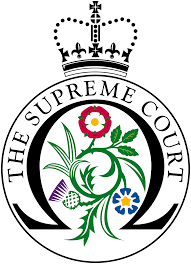
ABC Comments, have your say below:

Lend Your Paws to the Cause - The National Pro Bono Centre Need Your Support
The London Legal Support Trust, the organisation behind the The National Pro Bono Centre, based at 48 Chancery Lane, London WC2A 1JF do fantastic work helping those who cannot afford legal representation.
You can join in and give them your support.
London Legal Walkies Saturday 21st September
The furriest fundraising event returns in September. Grab your pet pooch and join them for a 5km stroll in Greenwich Park. Last year canine crusaders raised an impressive £4,000 for frontline free legal advice services. The walk commences at 10am and concludes at a dog friendly pub nearby. Lend your paws to the cause and sign up here.
Walk the Thames – 19th October
Get your running shoes (or walking boots on) and join The London Legal Support Trust for a walk down the River Thames this October. The route runs from Tower Bridge to Hampton Court – you can opt to take on a half or full marathon. The morning runners are led by Lord Justice Haddon-Cave and the afternoon walkers by Lord Justice Gross, though some are led to sample the finest watering holes the Thames path has to offer. What could be better than taking in London’s beautiful scenery while raising money for access to justice? For more information, please click here.
Theres no excuse. Get those walking shoes on, and get pounding the pavement for a very worthy cause.
And for the diary: Pro Bono Week will take place this year from 4 to 8 November 2019, returning for its 18th year to the traditional timing of the first full week of November.
Pro Bono Week provides an opportunity to encourage and recognise the voluntary contribution of lawyers in giving free legal help to those in need.
Contact Philippa Hicks, event manager, if you need more information: +44(0)20 7092 3974
ABC Comment, have your say below:

Disability Discrimination, ABC's Simon Collyer Appears on RT TV
The Disability Benefits Consortium - Has Welfare Become Unfair - report which talks about the impact of welfare changes on disabled people was launched in the Atlee Suite, Portcullis House, Westminster, SW1A 2LW on the 16th July. The report was funded by the Three Guineas Trust and research was carried out by the University of East Anglia and Howard Reed, from Landman Economics.
After some refreshments and networking the 80 odd organisations represented, heard passionate speeches from Neil Coyle MP, former co-Chair of the Disability Benefits Consortium, who is a current member of the Work & Pensions Select Committee. This was followed by a speech by, Michael Griffin, the projects research lead.

Image: Neil Coyle MP
A very detailed and comprehensive talk was them given by rising star; Marsha De Cordoba – Labour Shadow Disability spokesperson.

Image: Marsha De Cordoba – Labour Shadow Disability spokesperson.
A less technical, but no less powerful speech was next up from Neil Gray MP, SNP spokesperson, and DWP Work and Pensions committee member.

Image: Neil Gray MP.
We then heard from Adam from Bexley Mencap, who despite great difficulties due to autism and learning difficulties gave the large audience a most sincere and moving account of the problems that he and his wife...who is also disabled, have encountered due to the cuts.
Rounding off the afternoon meeting was Independent Cross Bench Peer and disability campaigner, Baroness Campbell of Surbiton, who despite being disabled herself since a child and wheelchair-bound, has been an active and strident campaigner for improving the welfare of such a needy group of people. The Baroness remarked on how all the gains of the preceeding decades were being swept away.
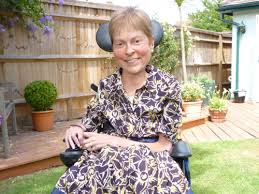
Image: Baroness Campbell of Surbiton.
Disabled people have lost four times the amount of benefits, that able-bodied people have. Non-disabled people have seen a reduction of £300 but the disabled have seen a reduction of £1,200. A disabled adult and a disabled child have lost around £4,300 each year.
Boris Johnson has talked about 'work' being the way forward for disabled people, but when the Tory government talk about work, they mean paid work. There is a lot of work done in the economy that is unpaid, and here you will find many disabled people contributing to society. A reasonable income allows people who must climb their own personal Everest everyday to live in dignity and to contribute to society.
The disabled are currently living in fear of being migrated onto Universal Credit, where after the transitional support runs out, they fear they will be left destitute.
Labour have pledged to do away with the dreaded face-to-face interviews and to come up with a fairer, more constructive way of evaluating claims. We have been invited to the House of Commons by Neil Coyle MP and we hope to bring you more information on the plans of all the various political party’s as we progress to what Boris Johnson is hoping will be an early general election.
The report is having an impact already. Amber Rudd DWP minister has been quick to claim the benefit freeze is coming to an end, which it was anyway. Boris Johnson [strangely] has been pointing out Winston Churchill as an example of someone who suffered from a disability (depression) yet still managed the job of prime minister. Churchill was a high-functioning alcoholic by today’s standards and used to work in his bed till midday, something that a Jobcentre Plus Work Coach would hardly approve of!
The irony is that Churchill lost an election in (5 July 1945) that everyone expected him to win. In came Clement Attlee's, Labour government, that set up the NHS and much of the welfare state. Perhaps a better example of someone holding down a job [as a diabetic as it happens] is that of the current prime minister, Theresa May. Either way, Churchill is a most strange example to pick for someone facing their own election D-Day.
Prime Ministers Question Time is likely to resemble the Tom & Jerry show in the meantime. The protagonists battling towards an election, in what promises to be a showdown between those in favour of the cruel, unjust dynamism of dog-eat-dog capitalism, and those in favour of a managed economy, one that works for all, including those with a disability. There are fourteen million disabled people in the UK. Ignore their views at your peril we argue here at the ABC.
RT TV deserves praise for giving these issues an airing.
ABC Comment, have your say below:

PLEASE download the report: Has Welfare Become Unfair below:

Food Bank Use Escalates
Ouch! Between 1st April 2018 and 31st March 2019, the Trussell Trust provided 1,583,668 emergency supplies to people in crisis – a rise of 18.8% compared to the previous year.
ABC Comment, have your say below:

Has Welfare Become Unfair - Disability Benefits Consortium Launches New Report
Disabled people are hardest hit because of changes to the welfare system leaving them in poverty.
- Disabled people are four times worse off financially than non-disabled people, according to new research commissioned by the Disability Benefit Consortium
- Disabled people typically have lost around £1,200 per year as a result of welfare changes with households with one disabled adult and one disabled child losing out most
Changes to the welfare system over the past ten years have left disabled adults four times worse off financially than non-disabled adults, according to new research commissioned by the Disability Benefit Consortium, a coalition of over 80 UK disability organisations.
While many people who receive welfare support have experienced cuts of an average of £300 as a result of changes to the welfare system, disabled people have typically lost around £1,200 per year.
The research funded by the Three Guineas Trust was the first comprehensive study looking specifically at the cumulative impact of welfare changes on disabled people, and conducted by the University of East Anglia, the University of Glasgow and Landman Economics. The research also found:
- The more disabilities you have the more you lose out, for example someone who has six or more disabilities loses over £2,100 each year on average, whereas someone with one disability loses around £700 each year
- Households with one disabled adult and one disabled child lose out the most, with average losses of over £4,300 per year
Today’s report by the Disability Benefits Consortium (DBC), ‘‘Has welfare become unfair - the impact of changes on disabled people”, which is based on this research, looks at the financial impact and lived experiences of welfare reform on disabled people over the past ten years.
As part of the research, 50 people living with a variety of conditions and disabilities were interviewed about their experiences. People said that they found the application and assessment processes highly stressful, and that they did not feel trusted, and constantly challenged.
The DBC also state that the current system has become so complex and dysfunctional, that many disabled people have found it has had a devastating impact on their wider health and wellbeing.
Pam McGee, 48, from Kent, was diagnosed with multiple sclerosis (MS) in 1994, which severely impacts her mobility. After a PIP assessment in 2017 she lost the higher rates for both the mobility and daily living components, which means her support was cut by £290 a month and she no longer qualifies for a Motability car. She’s now appealing the decision and says the stress caused by this process has impacted her health. She said:
“If I lost my car, I don’t know how I’d carry on. I’m terrified I’ll be out of a job because without the car I won’t be able to get anywhere. If I can’t work at the age of 48, I would lose all of my pride. People always ask ‘What’s your name and what do you do?’ My job is what defines me.
“In the last 10 weeks I’ve had a massive relapse. I went dizzy and lost all feeling in my left leg. When I spoke to my neurologist he said the relapse was probably caused by stress. I’ve also been depressed and eating less.
“PIP has caused me and my family a lot of anxiety and stress. It’s caused my MS symptoms to worsen, which has reduced my mobility, confidence, and ability to take care of myself physically as well as mentally.”
The DBC say that the failure to include disability premiums as part of Universal Credit, and poorly designed assessment criteria are just two examples of the problems that are leaving disabled people worse off and is calling on the Government to make urgent improvements to the welfare system to ensure it works for everyone.
Michael Griffin, Research Lead for the DBC and Senior Policy Adviser at Parkinson’s UK, said;
“For the first time, our research has shown just how much disabled people are bearing the brunt of the disastrous changes to welfare.
“Many disabled people have not yet even experienced the full extent of the cuts because they are still waiting to be moved over to Universal Credit. However, when this happens there will be a surge in poverty among those who are already at a crisis point.
“This is simply disgraceful and cannot be allowed to continue. The Government must make urgent improvements to the application processes and assessment criteria and resolve the flaws in Universal Credit before more people are denied the support they desperately need to live independently.”

ABC Comments, have your say below:

ABC Founder, Simon Collyer, Scheduled to Appear on the RT TV Evening News, July 16th
The report, Has Welfare Become Unfair, is being launched by the Disability Benefit Consortium (DBC) in the Houses of Parliament Tuesday afternoon. 80 charities and organisations are involved supporting the presentation of this report in the, Atlee Suite, Portcullis House, Westminster, SW1A 2LW.
The changes to the benefits system over the past 10 years are increasing the poverty levels of disabled people. Many people have experienced a reduction in benefits, but disabled people are four times worse off than non-disabled people.
You will be able to download and read the report and its recommendation at the ABC website tomorrow.
ABC founder Simon Collyer is scheduled to appear on the RT TV, evening news programme either 7pm, 8pm or 9pm on the 16th.
Who are the Disability Benefit Consortium (DBC)?
The Disability Benefit Consortium is a national coalition of more than 80 different charities and organisations committed to working towards a fairer benefits system.
Where can I watch the RT News channel?
The RT news channel in the UK moved over to Freeview SD channel 234 on Wednesday, August 2, 2018. For those with Freeview HD, the RT HD channel remains on channel 113. Some viewers in the UK may need to re-tune manually. For others, TVs may re-tune automatically. Content is also published on-line.
Image: ABC founderSimon Collyer recently appeared on the RT TV evening news with presenter Bill Dod.
 ,
,
Secretary of State for Work and Pensions (Appellant) v MM (Respondant)
Judgment in the following Supreme Court case will be handed down on Thursday 18 July 2019 at 9.45am in Courtroom 1:
Secretary of State for Work and Pensions (Appellant) v MM (Respondent) (Scotland) – UKSC 2017/0215
On appeal from the Inner House, Court of Session, Scotland
The respondent ("MM") is a 47 year old man who has suffered from anxiety and depression for six years. He is heavily reliant on his partner's assistance for daily living, including in social situations. In 2015 he made a claim for personal independence payment ("PIP"). This was refused by the Secretary of State for Work and Pensions on the basis that he had not scored at least eight points in respect of either daily living activities or mobility activities, as required under the Social Security (Personal Independence Payment) Regulations 2013.
His appeal to the First-tier Tribunal ("FTT") was refused. The FTT increased the number of points awarded, but this was still insufficient to meet the eight points threshold for either component. In respect of his ability to engage people face to face ("Activity 9"), the FTT awarded two points. MM appealed to the Upper Tribunal ("UT"), against the FTT's decision on activity 9.
He contended that his case fell within descriptor 9c ("needs social support to be able to engage with other people") rather than 9b ("needs prompting to be able to engage with other people") with the consequence that he should have been awarded four points for Activity 9, rather than two. The UT allowed his appeal and remitted the case for rehearing by a differently constituted FTT. In so doing, the UT gave directions on the meaning of "social support" in descriptor 9c. This included that there may be situations under 9c where a qualified person can provide social support non-contemporaneously, and that social support can include "prompting" subject to the requirement that it has to be from a person trained or experienced in assisting people to engage in social situations. The Inner House dismissed the Secretary of State’s appeal against the decision of the UT.
The issue is:
Where a claim to personal independence payment under the Social Security (Personal Independence Payment) Regulations 2013 is based on a person needing social support to be able to engage with other people: (1) must the social support needed be contemporaneous with the engagement being supported? (2) does anything that constitutes needing "prompting" to be able to engage with other people also constitute social support, subject to it being provided by a person trained or experienced in assisting people to engage in social situations?
ABC Note: Treatment of the disabled is a hot issue right now. We will be bringing an update on this acse in due course.
ABC Comment, have your say below:

Families in Conflict - New DWP Initiatives
DWP’s Reducing Parental Conflict programme has published a report looking at how parents from low-income households access online information and what support is most effective.
The findings of the report will be interesting to policy makers and family support workers as well as local authorities and their partners as they continue to shape and improve digital services that make a difference for parents and improve outcomes for children.
ABC Note: You can read the report below:
ABC Comment, have your say below:

Safe Families for Children is a project in the North West.
Safe Families for Children has been open for business in the region since 2015, receiving referrals from local authorities and helping struggling families get back on their feet.
The vision is a to create a network consisting of hundreds of compassionate, community-based volunteers who will reach out to families experiencing crises of different kinds.
You can find Safe Families for Children here:
PLEASE Download this DWP report - Families in Conflict.

Get Your State Pension - Online Video Released
The Department for Work and Pensions (DWP) has launched a video encouraging people to claim their State Pension online securely and quickly, rather than make a phone call or fill in a paper form.
The service is available 24 hours a day, 7 days a week and there’s help on hand if needed.
ABC Comment, have your say below:

Changes to Universal Credit
Changes to Universal Credit
Improvements have been made to help claimants understand their Universal Credit payments.
On the ‘Home’ page of a claimant’s online account, a ‘Payments' section is now available as soon as the claim is made that will display:
- the date that the first statement should be available
- the date they should receive their first payment
- a version of the statement to show how their payment will be made up based on what they’ve declared
The design of the statement itself has also been improved to make it clearer.
ABC Comment, have your say below:





